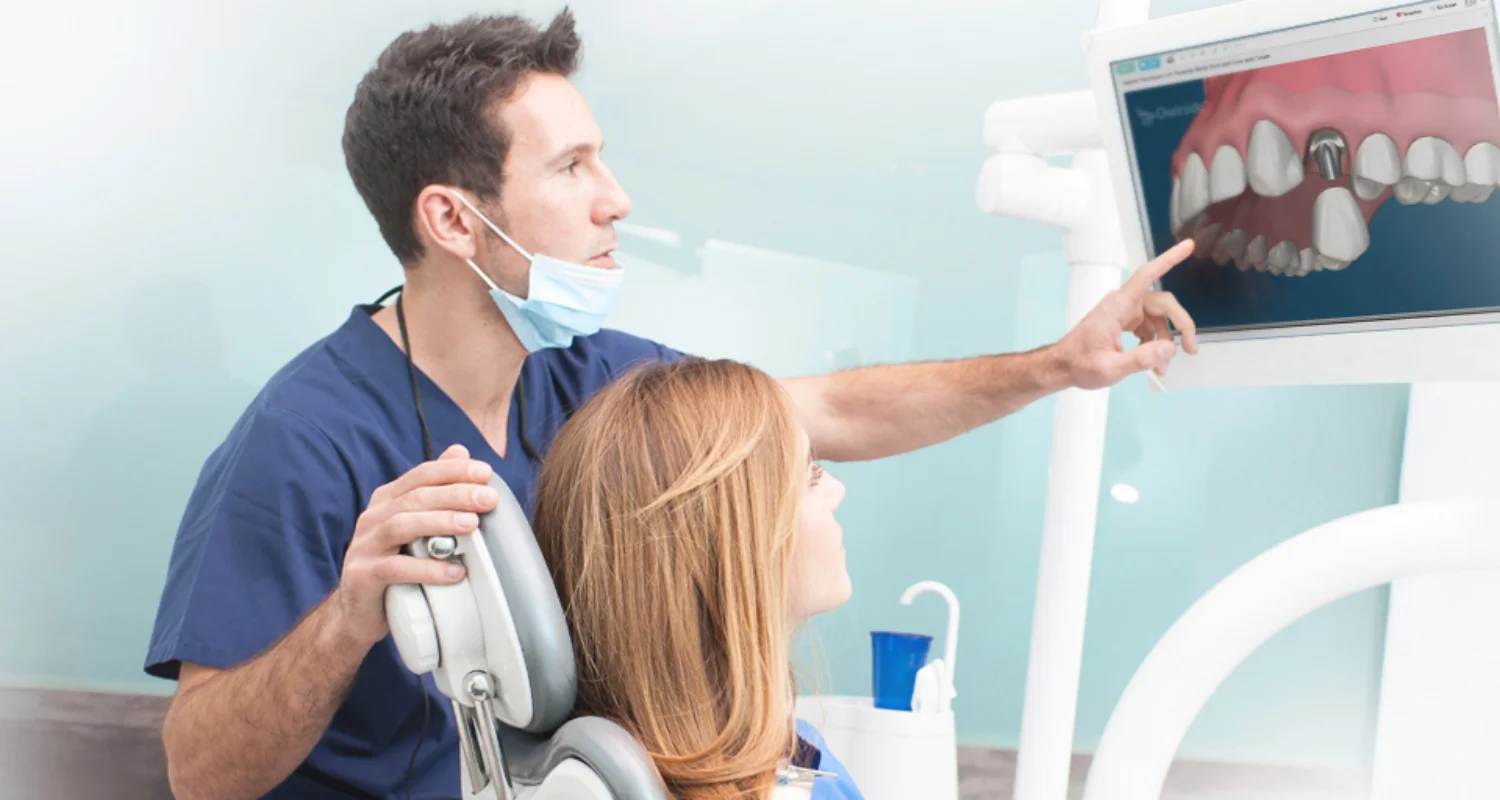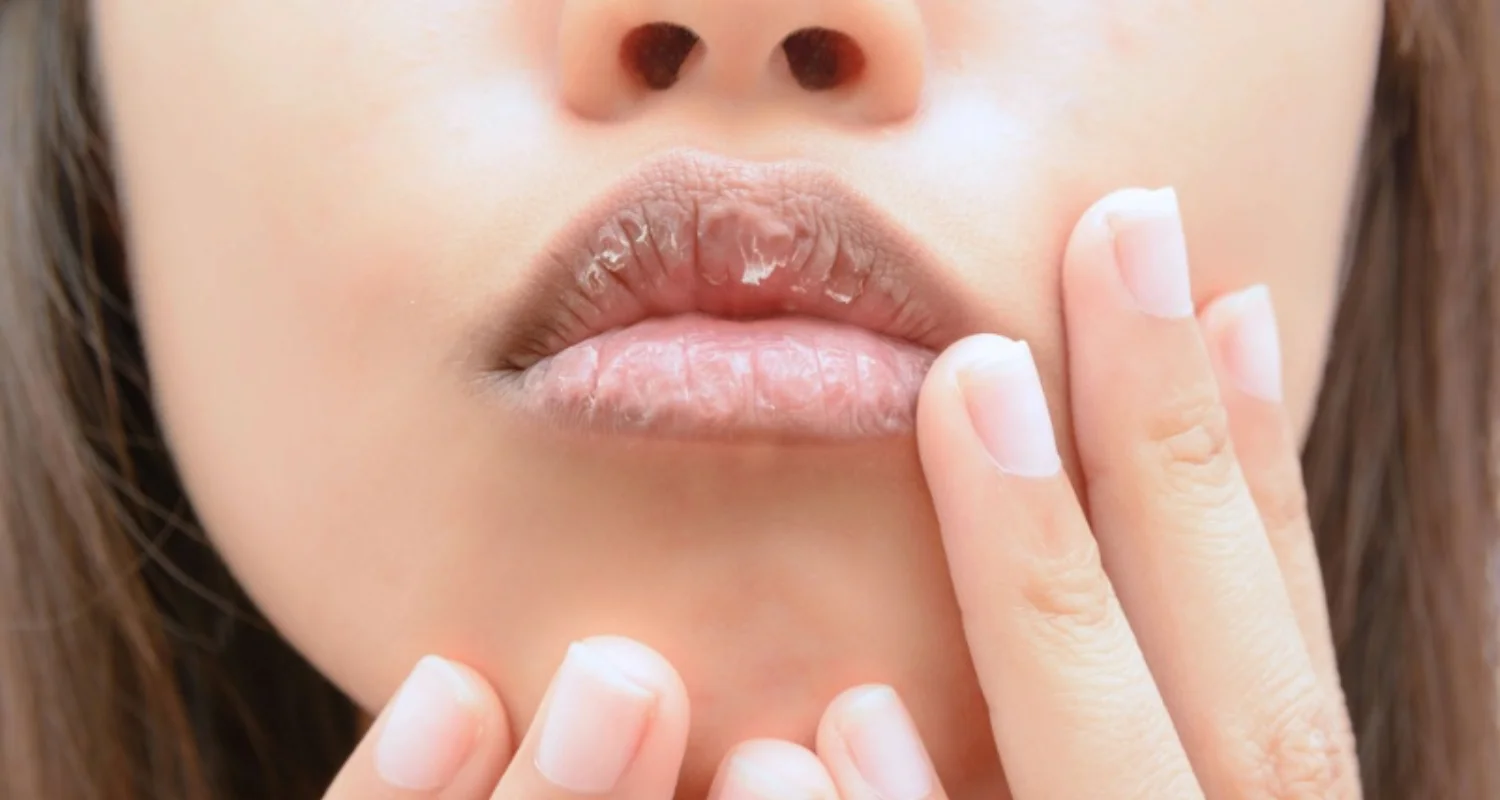Last Updated on: 22nd December 2025, 10:43 am
Download Your Free PTSD & Oral Health E-Book
Veterans day isn’t just a time to honor military service; it’s an opportunity to understand the unique health challenges veterans face along with the often hidden impacts of post traumatic stress disorder, better known as PTSD. Other than mental well-being, PTSD can affect physical health by weakening the immune system and increasing chronic pain. Of note, PTSD and oral health have a link.
Many veterans struggle with issues like teeth grinding, gum disease, or neglected dental care which is linked to PTSD-related anxiety and stress. Recognizing these effects allows us to support veterans holistically, promoting health in every sense, from mind to body, this Veterans Day and beyond.
In this article, we explore PTSD , its effects on physical and mental health, and the connection between PTSD and oral health. We will provide effective strategies for managing various challenges and tips on how to prevent them.
What is PTSD?
Post-traumatic stress disorder, or PTSD, is a psychiatric condition triggered by exposure or, in some cases, as a witness to aversive or extremely stressful events that can be life-threatening. This may include situations such as combat, natural disasters, serious accidents, or even prolonged human stress such as abuse or neglect.
Symptoms of PTSD may include flashbacks, nightmares, severe anxiety, and intrusive thoughts about the traumatic event, which can impact interpersonal relationships, quality of life, and overall functioning. Therefore, early recognition and treatment are essential for effective recovery.
The Impact of PTSD on Physical and Mental Health
Post-Traumatic Stress Disorder affects both the mind and body, often triggering chronic stress responses that interfere with daily life. Combat veterans face a particularly high risk; for example, according to a study, 15.7% of Iraq and Afghanistan veterans reported PTSD, with some estimates reaching 20-30%. PTSD symptoms extend beyond emotional distress, often manifesting physically due to the body’s prolonged “fight or flight” mode.
Physical symptoms can include pain in the face and jaw area, muscle pain around the mouth, difficulty moving the jaw, and extra sensitivity during dental check-ups. People with PTSD may also have clicking or popping sounds in the jaw while opening and other movement limitations.
Here’s a breakdown of the physical and mental symptoms associated with PTSD:
Physical symptoms PTSD
● Skin issues: Dryness, eczema, acne, rosacea due to stress-related moisture loss.
● Sleep disturbances: Insomnia, fatigue, muscle tension.
● Tinnitus: Stress-induced ear ringing, often tied to trauma recollections.
● Weight changes: Increased cortisol boosts cravings, leading to weight gain.
● Digestive problems: High cortisol causes acid reflux and bloating.
● Chronic pain: Cortisol depletion heightens pain sensitivity and muscle aches.
● Muscle loss: High cortisol hinders muscle growth and recovery.
● Poor circulation: Reduced blood flow causes cold hands and feet.
● Yawning & sweating: Nervous sweating and yawning from anxiety.
Psychological Symptoms
● Flashbacks/nightmares: Vivid re-experiences of trauma with physical responses.
● Avoidance: Avoiding trauma reminders (places, sounds, smells).
● Hyperarousal: Constant alertness, leading to exhaustion.
● Mood swings: Depression, anger, guilt, isolation.
● Self-destructive behavior: Substance abuse, impulsivity.
● Panic attacks: Dizziness, vomiting, rapid heartbeat linked to trauma.
● Memory and concentration issues: difficulty remembering and concentrating.
PTSD and Oral Health
PTSD can lead to various oral health issues due to both the psychological impact of the condition and the side effects of treatment. Veterans and others dealing with the condition may neglect oral hygiene, increasing the risk of inflammation, gum disease, and other dental problems.
Why Does PTSD Cause Oral Health Issues?
This disorder often disrupts daily self-care routines, including oral hygiene. PTSD and oral health are interrelated as high-stress levels lead to an increase in cortisol production, which can further cause inflammation and negatively impact gum health. In many cases, individuals may skip regular brushing and flossing, worsening their oral health over time.
Common Problems Linked to PTSD and Oral Health
● Gum disease: Increased cortisol levels and inflammation can contribute to periodontal disease.
● Tooth decay: Neglecting oral hygiene routines can lead to plaque buildup and cavities.
● Teeth grinding (bruxism): Stress-related bruxism can wear down tooth enamel and cause temporomandibular joint pain.
● Dry mouth: High cortisol and stress can reduce saliva production, leading to dry mouth and a higher risk of tooth decay. Along with this, changes in taste, glossitis, gingivitis, and periodontitis have also been found in 15–25% of PTSD patients.
Medications prescribed for PTSD, such as antidepressants (fluoxetine, escitalopram, etc) and anti-anxiety drugs, can cause dry mouth due to reduced saliva production. Saliva is crucial for protecting teeth against decay; thus, reduced saliva can increase the risk of tooth decay.
PTSD and oral health: How can veterans manage?
For veterans managing PTSD, self-care, including oral health, can often be neglected. However, simple daily habits can help prevent issues like dry mouth, tooth decay, and gum disease, which stress can worsen. Here are a few practical tips:
● Set daily reminders: Phone alarms or apps can be useful for keeping up with brushing and flossing, even on difficult days.
● Stay hydrated: Drinking water throughout the day promotes saliva flow, which helps protect teeth.
● Practice relaxation: Managing stress through deep breathing, meditation, or mindfulness can improve overall well-being and benefit oral health.
● Build a support network: Building a strong support network, including a mental health professional and a dentist, can help manage PTSD’s impact on oral health through a holistic approach.
● Use a night guard if necessary: Teeth grinding (bruxism) is common with PTSD. A night guard can protect teeth and ease jaw discomfort.
● Routine check-ups: Problems often arise when issues are identified too late, leading to complications and unwanted stress from additional dental work that could have been avoided because of which regular dental visits are important.
● Selecting the right products: A soft-bristled toothbrush, fluoridated mouthwash and toothpaste can contribute to making oral care on their own easier and even more comfortable.
Nutrition for Optimal Dental Health in PTSD Management
Diet plays a critical role in both mental well-being and oral health. Veterans with PTSD can benefit from nutrition choices that support their unique health needs, such as:
● High-fiber, calcium-rich, and omega-3 foods: Incorporate foods like leafy greens, nuts, fish, and dairy. These are not only great for teeth but also have anti-inflammatory effects, helping manage stress-related inflammation.
● Foods for strong teeth and relaxation: Whole grains, lean proteins, and magnesium-rich foods (like bananas and spinach) support both dental health and relaxation.
● Avoiding trigger foods: Reducing sugar and acidic drinks can prevent cavities and keep inflammation down. Avoiding caffeine may also help with anxiety symptoms.
The connection between PTSD and oral health is clear and impactful, especially for veterans who frequently encounter distinct health challenges. The stress, anxiety, and physiological changes tied to PTSD can deeply affect oral health, elevating the risks of gum disease, tooth decay, bruxism, and other dental concerns.
Recognizing these connections timely emphasizes the importance of self-care, including routine dental practices, hydration, stress management, and proper nutrition, to safeguard oral and overall well-being.
Therefore, this Veterans Day, we would like to honor and support veterans by understanding the full scope of their experiences and encouraging them to seek comprehensive care—including psychological and dental health—that can help enhance their quality of life and demonstrate our respect for their service.
Frequently Asked Questions
How does PTSD affect oral health?
PTSD can lead to chronic stress and anxiety, which trigger physiological responses that negatively impact oral health. Common effects include increased risks for gum disease, tooth decay, and bruxism (teeth grinding), as well as dry mouth caused by certain medications or stress itself. These factors can weaken teeth, cause pain, and lead to long-term dental issues if not managed with proper care.
Why are veterans with PTSD at higher risk for dental problems?
Veterans with PTSD face unique stressors that increase cortisol levels and strain the immune system, making them more susceptible to oral health issues. The physical manifestations of PTSD, such as teeth grinding, jaw clenching, and dry mouth from medications, all heighten the risks for dental problems. Additionally, PTSD may lead to dental care avoidance due to anxiety, making regular check-ups difficult.
What is bruxism, and why is it common in people with PTSD?
Bruxism is the habit of grinding or clenching teeth, often unconsciously, and it’s common among people with PTSD due to the high levels of stress and anxiety they experience. This behavior can wear down teeth, cause jaw pain, and even lead to temporomandibular joint (TMJ) issues if it persists without treatment.
How can I manage oral health if I have PTSD?
If you have PTSD, managing your oral health involves regular dental visits, stress-reduction practices, and daily oral hygiene. Using tools like smartphone reminders for brushing and flossing, along with relaxation techniques such as mindful breathing, can help reduce stress-induced habits like grinding. Additionally, working closely with a dentist experienced in treating patients with PTSD can ensure your care plan fits your unique needs.
Can PTSD medications cause dental issues?
Yes, certain medications commonly prescribed for PTSD, such as SSRIs or antipsychotics, can lead to dry mouth (xerostomia), which increases the risk of cavities and gum disease. It’s essential to consult with your dentist and healthcare provider to manage these side effects, such as using saliva substitutes or specific mouth rinses designed to help maintain oral moisture.
Are there specific dental treatments for people with PTSD?
People with PTSD can benefit from a few tailored dental treatments, such as custom mouthguards for bruxism and frequent, gentle cleanings to monitor gum health. Finding a compassionate dentist who understands the challenges of PTSD can make appointments more comfortable. Techniques like sedation dentistry may also be used for those with high dental anxiety to ease the process of care.
Can improving oral health have positive effects on mental health for veterans with PTSD?
Yes, maintaining good oral health can enhance overall well-being, which positively influences mental health. Regular oral care routines and dental visits provide a sense of accomplishment and structure, which can be beneficial for veterans with PTSD. Additionally, a healthy smile can improve self-esteem, reduce discomfort, and contribute to an overall sense of improved quality of life.
Share
References
1. De Oliveira Solis, A. C., Araújo, Á. C., Corchs, F., Bernik, M., Duran, É. P., Silva, C., & Lotufo-Neto, F. (2017). Impact of post-traumatic stress disorder on oral health. Journal of affective disorders, 219, 126–132. https://doi.org/10.1016/j.jad.2017.05.033
2. Solis, A. C. O., Corchs, F., Duran, É. P., Silva, C., Del Real, N., Araújo, Á. C., Wang, Y. P., & Lotufo-Neto, F. (2024). Self-reported bruxism in patients with post-traumatic stress disorder. Clinical oral investigations, 28(2), 152. https://doi.org/10.1007/s00784-024-05534-4
3. Gardner, A. (2024, July 21). Signs and Symptoms of Post-Traumatic Stress Disorder (PTSD). Retrieved from https://www.health.com/condition/ptsd/ptsd-symptoms#:~:text=People%20with%20PTSD%20might%20experience%20panic%20and%20the,response%20to%20certain%20triggers%2C%20like%20a%20specific%20smell.
4. Post-traumatic stress disorder (PTSD) – Symptoms and causes. (n.d.). Retrieved from https://www.mayoclinic.org/diseases-conditions/post-traumatic-stress-disorder/symptoms-causes/syc-20355967
5. Unexpected physical symptoms of PTSD – PTSD UK. (n.d.). Retrieved from https://www.ptsduk.org/10-unexpected-physical-symptoms-of-ptsd/
6. Whitbourne, K. (2024, April 18). PTSD: Signs and Symptoms. Retrieved from https://www.webmd.com/mental-health/what-are-symptoms-ptsd
7. Tagger-Green, N., Nemcovsky, C., Fridenberg, N., Green, O., Chaushu, L., & Kolerman, R. (2022). Oral and Dental Considerations of Combat-Induced Post Traumatic Stress Disorder (PTSD)-A Cross-Sectional Study. Journal of clinical medicine, 11(11), 3249. https://doi.org/10.3390/jcm11113249
-
Nayibe Cubillos M. [Author]
Pharmaceutical Chemestry |Pharmaceutical Process Management | Pharmaceutical Care | Pharmaceutical Services Audit | Pharmaceutical Services Process Consulting | Content Project Manager | SEO Knowledge | Content Writer | Leadership | Scrum Master
View all posts
A healthcare writer with a solid background in pharmaceutical chemistry and a thorough understanding of Colombian regulatory processes and comprehensive sector management, she has significant experience coordinating and leading multidisciplina...


















